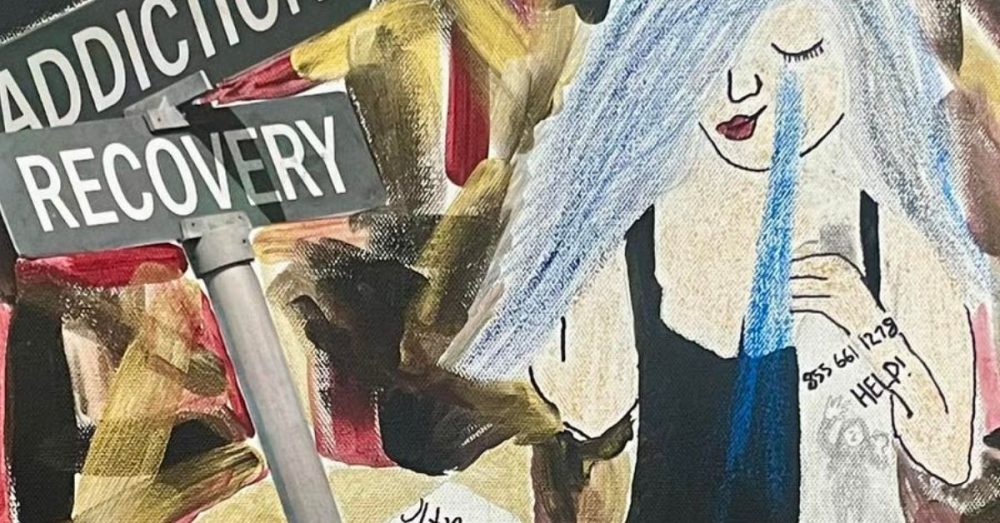Last month, a complex work of art that captured the artist freeing himself from drug addiction won first place in the second annual art contest held as part of a Dallas County pre-adjudication diversion program.
Carlos Jimenez’s Piece by Piece, which he described as showing him “pulling [him]self out of the muck, the dirt,” was one of several submissions looking to capture this year’s theme of the second annual “Art of Recovery” showcase: self-perception and inspiration in recovery, per a news release from the Dallas County District Attorney’s Office.
The art show is part of a broader felony diversion program called Achieve, Inspire, Motivate (AIM).
Launched in 2016 by Dallas County Judge Brandon Birmingham and currently overseen by Judge Audra Riley, AIM entails providing enrollees with support in areas such as mental health and substance abuse for a period of between 9 and 18 months.
To be eligible, a person must also be a nonviolent felon between the ages of 17 and 24, have no prior felony history, and demonstrate the desire to “make a change in their life,” per the Dallas County website.
AIM graduates — there have been 223 so far — have their criminal charges dismissed and their records expunged. A study in 2021 from the Meadows Mental Health Policy Institute found that AIM participants had 74% lower recidivism rates within two years than those put on probation.
George Johnson, AIM program manager, noted that while the 81 participants in AIM were able to craft poems, paintings, raps, and more to earn four hours of community service and receive a $25 Amazon gift card ($50 for first place), the contest was about much more than prizes.
“It’s about developing good habits, staying away from negative influences, and achieving positive outcomes. When you change your attitude and thinking, you change your behaviors, and that leads to great outcomes in life,” he said in the news release.
Speaking with The Dallas Morning News, he added that the AIM program can lead to real transformation, stressing that “success is a choice.”
In the past, Creuzot’s diversion policies have come under fire for being too lax on criminals. For instance, his diversion courts have aimed to release individuals facing drug charges if deemed eligible for probation on seemingly subjective factors, such as one’s perceived risk of recidivism.
Alongside refraining from prosecuting more minor drug cases, which Creuzot claimed was in the interest of sparing police resources, he also attempted an unpopular “theft-amnesty” policy, essentially permitting the theft of items less than $750 in value if stolen out of “necessity.”


